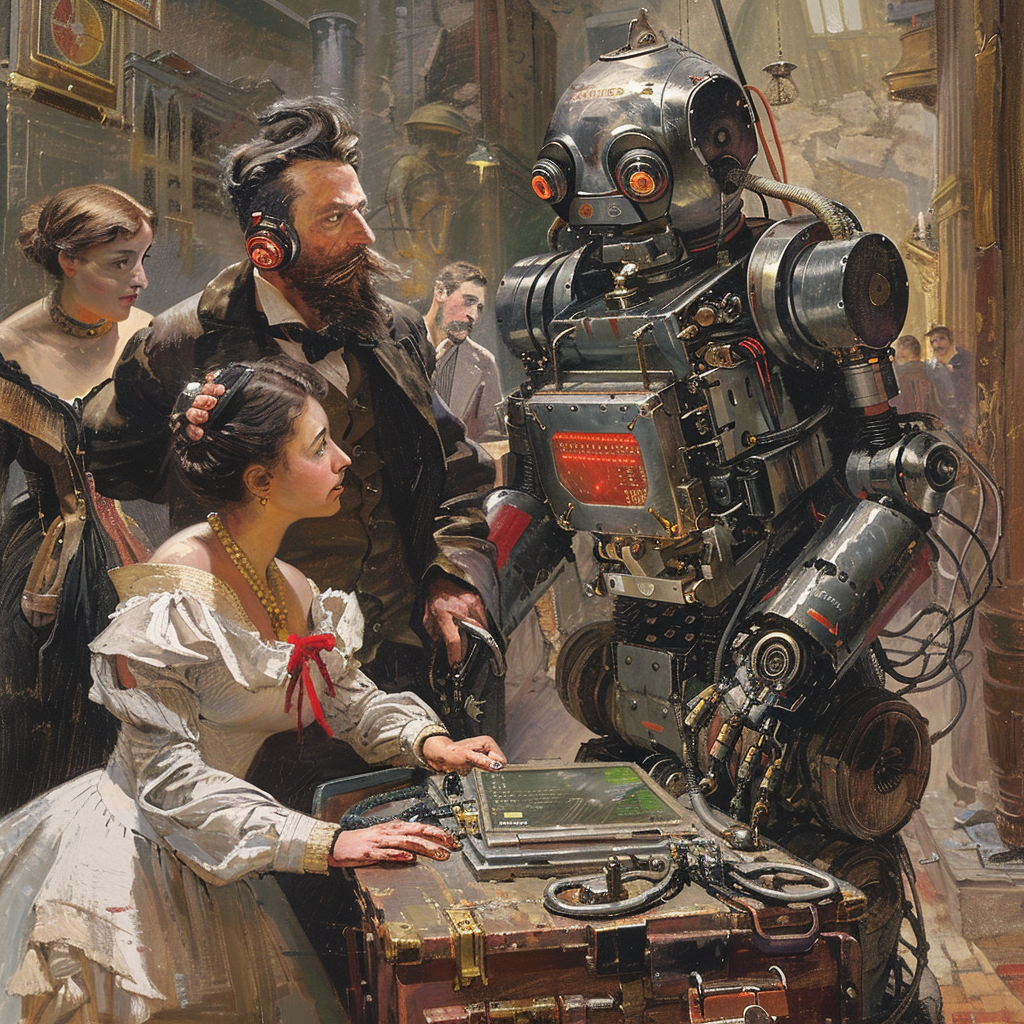The Intersection of Technology and Human Values in Los Angeles
The Legacy of Luddism and its Modern Incarnation: Neo-Luddism in 2024
The term ‘Luddite’ has historically been associated with a group of 19th-century English workers who destroyed weaving machinery as a form of protest. However, as a News Y Combinator article points out, this movement was less about opposing technology and more about advocating for workers’ rights in the face of industrialization. Today, the concept of neo-Luddism in 2024 reflects a contemporary skepticism towards unchecked technological advancement and its potential to disrupt societal norms.
As the Smithsonian Magazine eloquently reveals, modern Luddites are not anti-technology; instead, they invent tools to challenge technologies that they find troubling. This nuanced understanding of the Luddite philosophy underscores a critical debate about how we, as a society, integrate new technologies into our lives.
The blog post Luddite? Depends on your definition, further explores the evolution of the Luddites’ image from historical rebels to modern-day technoskeptics. It’s a reminder that the term ‘Luddite’ has layers of meaning, and its modern incarnation is complex, reflecting a broader concern for the ethical implications of automation and AI.
The Digital Autonomy Debate: Navigating Control in an AI-Driven Society
The digital autonomy debate is at the heart of discussions about our AI-driven society. As technology becomes increasingly integrated into our lives, questions about control, privacy, and freedom become more pressing. The Museum Two article delves into the ‘2.0 Culture Wars’, highlighting the tension between those who embrace technology and those who question its pervasive influence.
This debate isn’t just academic; it has real-world implications for how we live, work, and interact with one another. As AI systems become more sophisticated, the balance between technological convenience and personal autonomy becomes a tightrope that society must carefully navigate.
The conversation about digital autonomy is particularly relevant in Los Angeles, a city known for its innovative spirit and tech-savvy population. How will Angelenos reconcile their embrace of cutting-edge technology with their desire for independence and control over their digital lives?
AI and Automation Impact Los Angeles: Assessing the Transformation of the Job Market
The impact of AI and automation on the Los Angeles job market is a topic of significant interest and concern. With industries ranging from entertainment to manufacturing, the city’s economic landscape is particularly vulnerable to the transformative effects of technological advancements.
As automation technologies become more prevalent, traditional job roles are evolving, and in some cases, disappearing. This shift necessitates a reevaluation of skills and education to prepare the workforce for the jobs of the future. The question remains: How will Los Angeles adapt to these changes to ensure that its citizens are not left behind in the digital economy?

Ethical AI Los Angeles: Balancing Technological Advancements with Human Values
The concept of ethical AI is gaining traction in Los Angeles, where there’s a growing awareness of the need to balance technological advancements with human values. Ethical AI involves designing and implementing AI systems that are transparent, fair, and respectful of privacy and human rights.
In a city that prides itself on diversity and creativity, ethical considerations in AI development are not just optional; they are essential. As developers and businesses in Los Angeles push the boundaries of what AI can do, they must also consider the ethical implications of their creations.

The Future of Human Autonomy: Speculations and Strategies for the Digital Age
The future of human autonomy in the digital age is a topic of vigorous debate and speculation. With each technological leap forward, we must ask ourselves how these innovations will affect our ability to make independent choices and maintain control over our lives.
The Fast Company article suggests that we can learn from the Luddites’ resistance to technological disruption. By advocating for a human-centered approach to technology, we can ensure that our digital future enhances, rather than diminishes, our autonomy.
As we speculate on what the future holds, it’s crucial that we develop strategies that prioritize human welfare and autonomy. In Los Angeles, a city at the forefront of technological innovation, the stakes are particularly high, and the opportunities to lead in this area are abundant.
Are you a business in Los Angeles looking to navigate the complexities of AI and automation? Contact us at Bee Techy for a quote on how we can assist you in integrating ethical and effective technological solutions.
